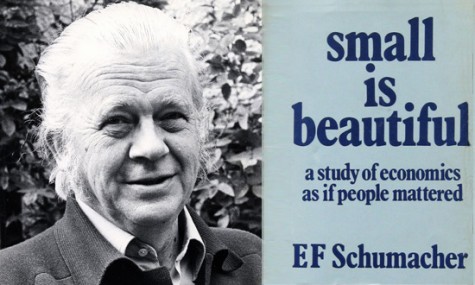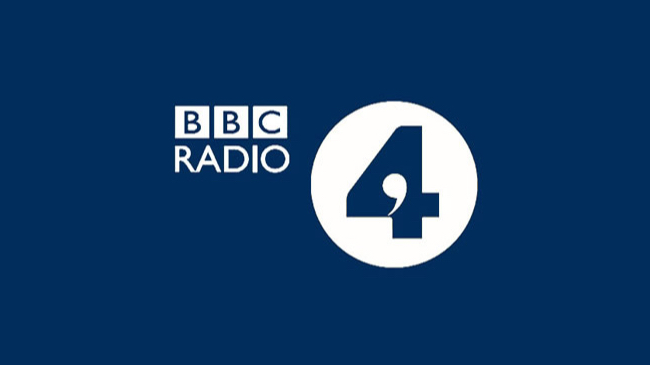‘Is small the next big? Are the visionary ideas of E F Schumacher, cult author of the 1970s classic Small is Beautiful, about to hit the mainstream?’
These were some of the questions which Leo Johnson was asking in a recent programme on the BBC Radio 4: ‘E F Schumacher: Is small the next big?’
Listening to it was like music to my ears, warming up my heart and brightening my day.
You may justifiably ask why this was the case. Let me tell you as I had noted on 11 May 2011:
“I discovered Schumacher and “Small is Beautiful” in 1979. To be precise: on August 11, 1979. I had written the date I purchased the book on the first page. At that time I was an undergraduate studying economics at the University of Windsor, Ontario, Canada.

Photo: neweconomics.org
When I saw the book in the window of a second-hand book shop, I was, very much intrigued by the title and also the sub-titleEconomics as if people mattered which caught my imagination. Thus, I bought the book and began to read it immediately. I could not put it down and finished it in a few days.
For sure I didn't understand every word, indeed I suspect I was lost at times, but it thrilled me. Here was a new way of looking at many questions in my head about economics and the economy, an approach that I felt in my enthusiasm was so absolutely right that it couldn't possibly be opposed. I was instantly converted to a new way of looking at my personal life as well as the socio-political and economic concepts. I suspect I became a `small is beautiful' man!
Schumacher’s thoughts have never left me. Yes, I moved on, put the book to one side and no doubt compromised. Recently however, I've gone back to it. I have realised that its insights are more relevant than ever. I know again, as I did 32 years ago, that Fritz Schumacher was absolutely right and I hope that, in a modest way, we are being worthy of his legacy.”…
Continue to read: E F Schumacher: Small is Beautiful
And now I wish to share my joy with you by inviting you to listen to the broadcast on the BBC Radio 4 discussing the relevance of Schumacher for today.
"An ounce of theory," wrote Schumacher, "is worth a ton of practice". In this programme, Leo Johnson goes on a search to see if the ideas of E F Schumacher are working on the ground. Are they delivering on the pressing economic and social challenges confronting us?
It's a tour of the landscape of the possible that takes us from the most successful bank share in the world - a bank with a quasi-mystical obsession with staying small - to the Brixton pound, complete with Brixton's local lad David Bowie on the £10 note. We go from SIM-enabled solar lights targeting the Kenyan poor, via the Maker Movement - pioneers of distributed manufacturing - at Technoport in Norway, and finally to the bewilderingly salad-loving children of Bristol's Ashton Vale primary school.
What emerges is a blueprint for a different economy - where banks can lend to small businesses, where local communities re-form, where decentralised renewable energy delivers lower cost power, and where work forms us not as tools adapted to our machines but as beings connected to the people and place around us. It's a vision of an economy in transition towards the small - from mass towards micro-production, from fossil fuels towards local renewables, from centralised to distributed organisations - and where our own role shifts from consumer to producer and citizen.
It's a glimpse of economics, as Schumacher put it, "as if people mattered".
And now listen to the BBC Radio broadcast on Is Small the Next Big?

